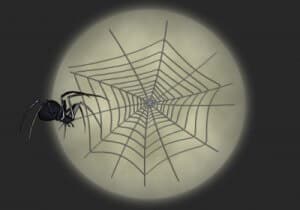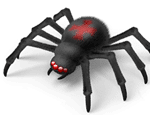Many people are scared of spiders. Emma Stone, Justine Timberlake and Selena Gomez are just some of the well-known personalities who admitted in public that they are afraid of spiders. Estimates have it that 3.5% to 6.1% of the population have some fear of spiders.
No wonder spiders also frighten poor Little Miss Muffet – remember her from way back when?
Little Miss Muffet
Sat on a tuffetEating her curds and whey
. Along came a spider
Who sat down beside her
And frightened Miss Muffet away.
But what is it about spiders that make so many of us so afraid of them? With their eight hairy legs, their eight alien-looking eyes, and especially with their perpetually moving fangs, they really do seem kind of very menacing when seen up close.
Who Is Scared of Spiders
And they have very disgusting mating habits. Even the hardened will get squeamish in the stomach after watching a female spider killing and eating a male just after having sex with scared of spiders. Observing how spiders eat their prey, sucking them dry of life, can be a very unpleasant experience too. Spiders also move very fast and very unpredictably. One moment, they are up on the ceiling, the next moment, they are in your hair. And they are tough and hard to kill
– the Itsy Bitsy spider climbing up the spout
Down came the rain and washed the spider out
Out came the sun and dried up all the rain
Now Itsy Bitsy spider went up the spout again!
Some scientists believe that our fear of spiders may be instinctive, hardwired into our brains as we were evolving during prehistoric times. According to them, back when we were forest-foraging cave or tree dwellers, we learned to survive by avoiding being bitten by venomous spiders. During those times, spider bites were almost always lethal so we learned to develop a then very healthy fear of spiders. Now that we no longer have to live in caves or trees, that kind of fear has, of course, already outlived its usefulness.
During those times, spider bites were almost always lethal so we learned to develop a then very healthy fear of spiders. Now that we no longer have to live in caves or trees, that kind of fear has, of course, already outlived its usefulness.
There are at least 43,678 species of scared of spiders today, of which only 27 have been known to cause human fatalities. In the United States, the recluse spiders and the black widow spiders are the most feared on account of their venomous bites.
Venom from the recluse spiders is necrotic, meaning it can rot human tissue, while black widow venom is neurotoxic, attacking the nervous system and causing painful cramps and impeding breathing.
Most other spiders are fairly harmless and even useful to humans as they keep away flies, mosquitoes and other insect pests at bay. Because they are associated with fear and creepiness, spiders and spider webs, like black cats and bats, have long been used as favorite Halloween icons.

